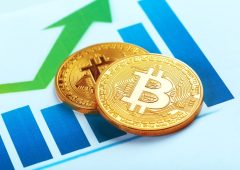Banking Challenges Highlight Crypto Industry Discrimination
22.12.2024 17:00 1 min. read Alexander Zdravkov
Limited access to banking services has been probably the greatest challenge for cryptocurrency hedge funds these past few years.
This issue highlights growing tension between traditional financial institutions and the digital asset industry.
A recent survey reveals that three-quarters of crypto-focused hedge funds have faced difficulties maintaining banking relationships. Common problems include sudden account closures and vague justifications tied to the perceived volatility of the cryptocurrency market.
By contrast, funds in sectors like real estate and private credit reported no such issues, underscoring a glaring disparity.
Leaders in the crypto space are voicing concerns about potential discrimination. Coinbase’s Chief Legal Officer, Paul Grewal, questioned why crypto funds face these challenges while other industries do not. Bitwise’s Matt Hougan described the situation as a long-standing issue that was often ignored or dismissed by outsiders, leaving crypto firms feeling marginalized.
With Donald Trump’s incoming administration signaling a more supportive stance toward cryptocurrencies, there is renewed hope for change. David Sacks, recently appointed as the administration’s AI and Crypto Czar, has emphasized the need to address these restrictive banking practices and their impact on the sector. Many in the industry see this as a crucial step toward fairer treatment for crypto-related businesses.
-
1
Market Odds of a U.S. Recession in 2025 Drop in Half Since May
05.07.2025 18:30 2 min. read -
2
What Brian Armstrong’s New Stats Reveal About Institutional Crypto Growth
29.06.2025 15:00 2 min. read -
3
Vitalik Buterin Warns Digital ID Projects Could End Pseudonymity
29.06.2025 9:00 2 min. read -
4
Donald Trump Signs “One Big Beautiful Bill”: How It Can Reshape the Crypto Market
05.07.2025 9:56 2 min. read -
5
Toncoin Launches UAE Golden Visa Program Through $100,000 Staking Offer
06.07.2025 12:04 2 min. read
BitGo Files Confidentially for IPO With SEC
BitGo Holdings, Inc. has taken a key step toward becoming a publicly traded company by confidentially submitting a draft registration statement on Form S-1 to the U.S. Securities and Exchange Commission (SEC).
Crypto Greed Index Stays Elevated for 9 Days — What it Signals Next?
The crypto market continues to flash bullish signals, with the CMC Fear & Greed Index holding at 67 despite a minor pullback from yesterday.
U.S. Public Pension Giant Boosts Palantir and Strategy Holdings in Q2
According to a report by Barron’s, the Ohio Public Employees Retirement System (OPERS) made notable adjustments to its portfolio in Q2 2025, significantly increasing exposure to Palantir and Strategy while cutting back on Lyft.
Key Crypto Events to Watch in the Next Months
As crypto markets gain momentum heading into the second half of 2025, a series of pivotal regulatory and macroeconomic events are poised to shape sentiment, liquidity, and price action across the space.
-
1
Market Odds of a U.S. Recession in 2025 Drop in Half Since May
05.07.2025 18:30 2 min. read -
2
What Brian Armstrong’s New Stats Reveal About Institutional Crypto Growth
29.06.2025 15:00 2 min. read -
3
Vitalik Buterin Warns Digital ID Projects Could End Pseudonymity
29.06.2025 9:00 2 min. read -
4
Donald Trump Signs “One Big Beautiful Bill”: How It Can Reshape the Crypto Market
05.07.2025 9:56 2 min. read -
5
Toncoin Launches UAE Golden Visa Program Through $100,000 Staking Offer
06.07.2025 12:04 2 min. read


